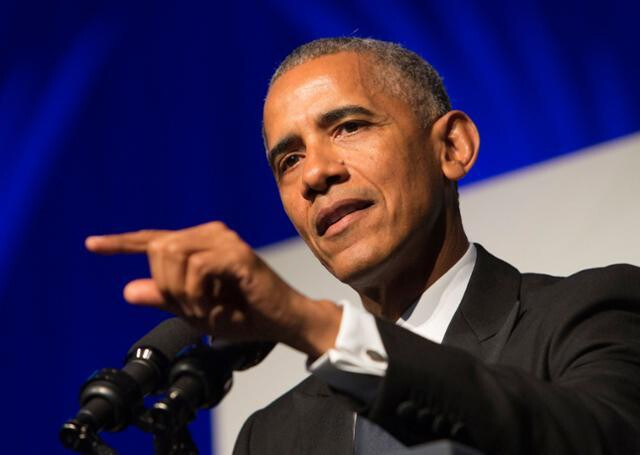
WASHINGTON D.C. – Former U.S. President Barack Obama has issued a stark warning regarding the current trajectory of American politics, cautioning that the nation is "dangerously close" to adopting characteristics reminiscent of totalitarian regimes. His remarks underscore growing anxieties about the health of liberal democracy in the United States.
Speaking at a recent event, Obama emphasized that "democracy is not self-executing," asserting that its preservation hinges on the active commitment of all citizens, including judges, public servants, and members of the executive branch who have sworn to uphold the Constitution. He pointedly critiqued the rhetoric and actions of the current federal government, stating they diverge significantly from the standards of liberal democracy upheld by the U.S. since World War II.
"If these principles collapse, the United States will gradually lean towards a system other than democracy," Obama cautioned. He drew parallels to Hungary under Prime Minister Viktor Orbán, a country that holds elections but where checks and balances have eroded. "What we're seeing right now… is not consistent with American democracy; it is consistent with autocracies," he stated, adding, "We're not there yet completely, but I think that we are dangerously close to normalizing behavior like that."
Obama's concerns come amidst a politically charged climate, with various analyses, including reports like "The Authoritarian Playbook for 2025" and "Project 2025," highlighting proposals that critics argue could undermine the rule of law, separation of powers, and civil liberties. These initiatives, often described as aiming to dismantle perceived bureaucratic biases, are seen by some legal experts as a significant threat to democratic institutions. The political landscape is further complicated by deepening polarization, waning public trust in institutions, and a rise in anti-democratic behaviors.
Nationwide "No Kings" Protests Erupt
Coinciding with Obama's warnings, massive "No Kings" protests swept across the United States on June 14, 2025. Millions of Americans took to the streets in thousands of cities and towns, including Los Angeles, Washington D.C., Philadelphia, New York City, Chicago, Denver, and various locations in Texas. These demonstrations were a direct response to the Trump administration's immigration enforcement policies and a controversial military parade held in Washington D.C., commemorating the U.S. Army's 250th anniversary and coinciding with President Trump's 79th birthday.
Protesters, many carrying signs bearing the slogan "No Kings," voiced their rejection of what they termed authoritarianism, "billionaire-first politics," and the militarization of American democracy. In Los Angeles, demonstrators confronted police near federal buildings, while in Washington D.C., protests took place near the military parade route, with some observers denouncing the spectacle as "dictator behavior."
The "No Kings" movement, organized by a coalition of advocacy groups, emphasized its commitment to non-violent action. They called the June 14 demonstrations a "national day of defiance," designed to push back against an administration they claim has "defied our courts, deported Americans, disappeared people off the streets, attacked our civil rights, and slashed our services." Large crowds were reported, with estimates reaching 100,000 in Philadelphia, 50,000 in New York City, 30,000 in Los Angeles, and 20,000 in Chicago.
Obama expressed hope regarding the vibrancy of civil society's resistance, calling it a "hopeful response." He urged that efforts to protect democracy must occur both within and outside government institutions. He also advised younger generations to harbor a "healthy anger" against injustice and cruelty, but stressed that genuine change arises from "the politics of addition," finding common ground with those of differing views. "When different people come together and work together, the 'better angels' Abraham Lincoln spoke of appear," Obama concluded, defining this as the root of democracy and the force that protects society.
[Copyright (c) Global Economic Times. All Rights Reserved.]




























